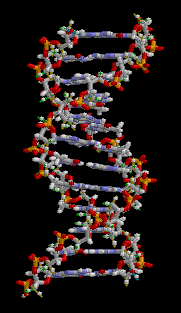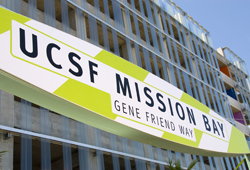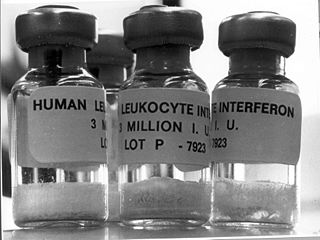Tags: biomedical research, 2012 Research Funding, University of Nevada Reno, UNR, Nevada, 2012, Neuroscience, Front Line event, NV, Reno, Biomedical Research Funding
 In an attempt to shore up both the reputation and functionality of the nations's largest state-funded cancer agency, officials at the Cancer Prevention and Research Institute of Texas (CPRIT) just announced the appointment of Dr. Margaret Kripke as the agency's new chief scientific officer. The embattled agency has faced accusations from many of its key scientists that irregularities and favoritism in the funding process have undermined their scientific credibility and put commercialization above research.
In an attempt to shore up both the reputation and functionality of the nations's largest state-funded cancer agency, officials at the Cancer Prevention and Research Institute of Texas (CPRIT) just announced the appointment of Dr. Margaret Kripke as the agency's new chief scientific officer. The embattled agency has faced accusations from many of its key scientists that irregularities and favoritism in the funding process have undermined their scientific credibility and put commercialization above research.
Tags: cancer research, women in science, Texas A&M University, Texas Medical Center, Texas, Southwest, 2012, College Station, BioResearch Product Faire Event, Funding, Houston
 Yesterday we looked at two biologically inspired engineering experiments out of the Wyss Institute in Boston. Today we're on the West Coast at the University of California Santa Barbara's Institute for Collaborative Biotechnologies (ICB) marvelling over another technology that takes its cue from the biological world. It's a microfluidics device designed to function much like the super-sensitive nose of a dog, and it's already being commercialized for use in bomb detection, though other applications could include bio/chemical detection in industrial and healthcare settings as well. Results of the research gauging bomb detection accuracy specifically were published recently in an article in the journal Analytical Chemistry.
Yesterday we looked at two biologically inspired engineering experiments out of the Wyss Institute in Boston. Today we're on the West Coast at the University of California Santa Barbara's Institute for Collaborative Biotechnologies (ICB) marvelling over another technology that takes its cue from the biological world. It's a microfluidics device designed to function much like the super-sensitive nose of a dog, and it's already being commercialized for use in bomb detection, though other applications could include bio/chemical detection in industrial and healthcare settings as well. Results of the research gauging bomb detection accuracy specifically were published recently in an article in the journal Analytical Chemistry.
Tags: CA, Lab-on-a-chip Technology, Southwest, California, 2012, University of California Santa Barbara, Biotechnology, Front Line event, UCSB, Santa Barbara
 By now we all know that DNA is an informational molecule encoding the genetic instructions used in the development and functioning of all known living organisms and many viruses (Wikipedia). But very recently, Harvard University bio engineers at the Wyss Institute have shown that deoxyribonucleic acid can also be used as a tool. Specifically, two teams have published eye-opening studies on using DNA creatively to:
By now we all know that DNA is an informational molecule encoding the genetic instructions used in the development and functioning of all known living organisms and many viruses (Wikipedia). But very recently, Harvard University bio engineers at the Wyss Institute have shown that deoxyribonucleic acid can also be used as a tool. Specifically, two teams have published eye-opening studies on using DNA creatively to:
Tags: Wyse Institute, synthetic biology, 2012, Massachusetts, bio research, Boston, BioResearch Product Faire Event, MA, Harvard, Harvard Medical School
 For both dairy and beef production, cows are an important part of the US economy and food supply. When they get sick, it's bad for business (and not too pleasant for the cow). The most common illness in cattle is Bovine Respiratory Disease (BRD), which accounts for losses of more than $690M annually in the US alone. To combat this threat to bovine health and productivity, the USDA has recently awarded a $9M 5-year grant to researchers at Texas A&M University's College of Veterinary Medicine and Biomedical Sciences, in collaboration with colleagues at the University of Missouri, to study genetic selection for breeding more disease-resitant stock. A second $5M grant will go towards research into feed efficiency, again with the aim of breeding heartier, healthier, and more profitable animals.
For both dairy and beef production, cows are an important part of the US economy and food supply. When they get sick, it's bad for business (and not too pleasant for the cow). The most common illness in cattle is Bovine Respiratory Disease (BRD), which accounts for losses of more than $690M annually in the US alone. To combat this threat to bovine health and productivity, the USDA has recently awarded a $9M 5-year grant to researchers at Texas A&M University's College of Veterinary Medicine and Biomedical Sciences, in collaboration with colleagues at the University of Missouri, to study genetic selection for breeding more disease-resitant stock. A second $5M grant will go towards research into feed efficiency, again with the aim of breeding heartier, healthier, and more profitable animals.
Tags: Texas A&M University, Texas, veterinary medicine, Southwest, 2012, animal science, College Station, TAMU, BioResearch Product Faire Event, Texas A&M Research, Genomics, Genetics, Texas A&M
At the University of Illinois at Chicago, biochemists have developed an intuitive solution to the age-old problem of macular degeneration, the leading cause of loss of vision for people over the age of fifty. Their new product is a light-sensitive molecule that can restore vision lost from degenerative eye diseases.
Tags: Midwest, University of Illinois Chicago, 2012, Illinois, BioResearch Product Faire Event, Chicago, IL, UIC
 It might or might not surprise you that some very strong private biomedical research institute funding at the University of California San Francisco campus comes from the father of the first enclosed southern California shopping mall, on the one hand, and the founder of Star Trek on the other. Those two innovative individuals, J. David Gladstone and Gene Roddenberry respectively, have left much of their considerable legacy to science research into understanding human disease. A year ago this time, the Gladstone Institutes welcomed the Roddenberry Foundation into its research family with the establishment of the Roddenberry Center for Stem Cell Biology and Medicine within the Gladstone walls on Owens Street in Mission Bay. Two months ago one of the Gladstone's senior research scientists won the Nobel Prize for his groundbreaking work with induced pluripotent stem cells. Those events, in conjunction with the 3 decades of research milestones made by their scientists, as well as their affiliation with UCSF and its world-class stem cell research program position the Gladstone solidly to meet their 21st Century mission goal:
It might or might not surprise you that some very strong private biomedical research institute funding at the University of California San Francisco campus comes from the father of the first enclosed southern California shopping mall, on the one hand, and the founder of Star Trek on the other. Those two innovative individuals, J. David Gladstone and Gene Roddenberry respectively, have left much of their considerable legacy to science research into understanding human disease. A year ago this time, the Gladstone Institutes welcomed the Roddenberry Foundation into its research family with the establishment of the Roddenberry Center for Stem Cell Biology and Medicine within the Gladstone walls on Owens Street in Mission Bay. Two months ago one of the Gladstone's senior research scientists won the Nobel Prize for his groundbreaking work with induced pluripotent stem cells. Those events, in conjunction with the 3 decades of research milestones made by their scientists, as well as their affiliation with UCSF and its world-class stem cell research program position the Gladstone solidly to meet their 21st Century mission goal:
Tags: CA, University of California San Francisco, Stem cell research, California, 2012, San Francisco, Biotechnology Vendor Showcase, UCSF, Gladstone Institutes, San Francisco at Mission Bay

Researchers in the St. Giles Laboratory of Human Genetics of Infectious Diseases at Rockefeller University have recently published the results of a study that demonstrates how organs like the brain have their own defense systems which, when disrupted, can permit disease despite a healthy white blood cell count. The key is the production of interferon, which are proteins triggered by a receptor called TLR3 that send up the alarm to fight infection (by interfering with the pathogen's reproduction). When that TLR3 receptor is faulty on a neuron or other brain cell, no interferon is produced and the patient can suffer a disease of the brain even though that same pathogen is being combatted effectively in other parts of the body. We now know there seem to be localized systems of immune response within specific organs, and that interferon therapy may help patients with rare localized diseases.
Tags: Rockefeller University, biomedical research, Stem cell research, New York, 2012, Immune System, brain research, BioResearch Product Faire Event, NY, New York City
Duke University has been selected as one of seven schools to be on the forefront of a United States effort to help eliminate desperate poverty around the world. Duke will receive a $10 million grant from the U.S. Agency for International Development (USAID) to form a development lab whose goal is to pinpoint and support progress in solutions to worldwide health problems in low- and middle-income nations.
Tags: USAID, Duke University, North Carolina, 2012, BioResearch Product Faire Event, Durham, NC, Duke, research scientist
Earlier this week, we discussed the commercialization of neural interface chips at the University of Utah. Meanwhile, at the University of Michigan at Ann Arbor, researchers are innovating in neuroscience on an even smaller scale. A new, slimmer electrode allows for the more precise studying of individual neurons and promises insight on the workings of the mind based on the interactions between neurons and the brain.
Tags: University of Michigan, Midwest, 2012, Michigan, Ann Arbor, Neuroscience, BioResearch Product Faire Event, MI, UM

